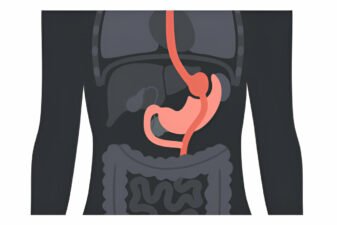Who Are Weight Loss Drugs Designed For?
Weight reduction medications are not designed for trivial or cosmetic weight loss. They are designed to help obese patients, as part of an overall weight management program. They should not be used as a substitute for healthy eating and exercise. On the contrary, all clinical weight loss trials show that obesity drugs are only effective when used in combination with a healthy diet and regular exercise.
What are the Main Types of Obesity Drugs?
There are two basic types of FDA-approved obesity pharmaceuticals: drugs that reduce appetite, and those that reduce fat-absorption.
Medications to Reduce Appetite
These prescription drugs typically work on chemicals in the brain, leading to a reduction in appetite. Most are FDA-approved only for short-term use (less than one year). Meridia® (active ingredient, Sibutramine) is the only appetite suppressing drug approved for long-term use.
Medications to Reduce Fat Absorption
This is a new type of obesity drug, called Xenical® (active ingredient, Orlistat), which operates in the stomach and small intestine where it inhibits fat-digestion by up to 30 percent. Since it does not affect the brain, nervous system, or heart rate, Xenical® is considered a safe option for patients with hypertension or heart risks. Patients on Xenical® excrete all undigested fat, and so are advised to follow a low-fat eating plan to minimize discomfort.
Do Obesity Drugs Cause Weight Loss?
Yes. Weight loss pharmaceuticals can be effective, but only when combined with proper diet and exercise. Actual weight loss varies from patient to patient, but average weight losses of 15-20 pounds in excess of that achieved with non-drug diet-and-exercise treatments, might be expected during the course of 1-2 years.
What are the Side Effects of Obesity Drugs?
Health effects of appetite suppressants may include: headache or dizziness, restlessness, tremors, nervousness or anxiety, insomnia, dry mouth, diarrhea or constipation. There have been cases of raised blood pressure, seizures, strokes and heart damage but these are rare events. Side effects of lipase-inhibitors such as Xenical® include unpredictable and increased bowel movements. However, since all obesity drugs are subject to stringent testing prior to launch, and because (after approval) their health effects are carefully recorded by manufacturers and the FDA, side effects are typically well publicised.
Seek Medical Advice and Information
Before making any decision about using prescription pills to lose weight, you should ask your doctor for a full explanation of your options. When choosing a particular weight loss medication, ask for a full list of known side effects. Obesity drugs are not a safe weight management option for all patients, so get as much information as you can before making a decision.










